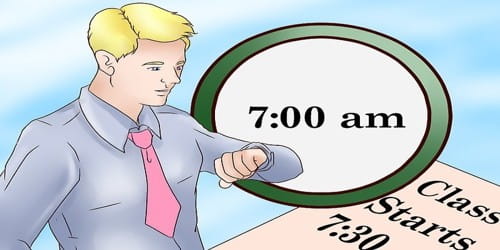The profession of teaching is one of the oldest in the world. And it is certainly one of the noblest. The teacher or the guru, in the ancient world, always enjoyed not only the patronage but the reverence of the state. Teachers like Vishnu Sharma or Socrates exercised a powerful influence in building up the mind and morals of young men. But in those far-off days, the profession was not organized. It was an affair of the individual. The learned man would invite and attract pupils who would live with him in close and personal communion and learn from him through his examples as much as by his precepts. He would impart to them what he knew and make them heirs of his mind and inheritors of his wisdom. Perhaps the range of what he knew was limited but his death was profound. He was poor in the worldly sense, but his intellectual life was rich beyond measure.
They are of teaching in modern times has suffered a revolutionary change. It has become highly specialized. Its mystery has to be mastered. It has to be based not only on scholarship but also on the right methods of teaching. In must seek not only to put into the mind of the pupil items of knowledge but draw out (or reduce) the learner’s mind. Hence it is based on the psychology of the learner and the teacher must be a good student of child psychology. Therefore, teaching nowadays is both a science to be acquired and an art to be practiced.
The medieval pedagogue was harsh and severs; he would continually thunder instructions over the heads of his pupils, and enforce them by liberal use of the cane. He would subject the student’s memory to the severest strain. Where books were scarce and laboriously produced by hand, memory had an important function, and pedagogy took this fully into account. But that is not the modern method. The teacher today guides, explains, and demonstrates. His highest function consists not so much in imparting knowledge as in stimulating the pupil’s mind, in creating his mental attitude. He must not only instill his own opinions into the receptive mind of the pupil, but he must also teach him to think, to form opinions. His approach must be human and sympathetic. Of course, the idea is not new: Montaigne said as early as the 16th century, “in the education of children there is nothing like alluring the interest and the affection; otherwise you make only so many asses laden with books.” But practical use of his theory owes much to Rousseau and to men like Froebel and others who developed Rousseau’s theories, which have since then been developed into a scientific technique.
The great teacher seems to be a rare phenomenon. He is divinely gifted. He is the creator of men. The disciples of Socrates have left an indelible stamp on the human mind which proclaims the greatness of their master. Such a one was Derozio: he revolutionized the outlook of young Bengal. Such another was Arnold of Rugby; he left an impression on the British Empire. No nation can be great which has not its epoch-making teachers of men.
Therefore, it is all-important to have educational institutions for training the right type of teachers. These must teach not only the theories and methods but must also arrange practical instructions in the art of teaching. Vidyasagar realized these a hundred years ago, and he founded “normal schools for teachers on the principle of normal Ecole of France. Both in the sergeant scheme and in the Wardha scheme, the greatest emphasis has been placed on having well-trained teachers as a prime necessity in the re-organization of the country’s educational system. The success of such a system depends on attracting the right type of young men to devote themselves to leering the art of teaching and taking it up as a profession.
Unfortunately today, the teacher, in our country at least, does not enjoy the honor and the privileges which used to be his in the past. It is forgotten that teachers are the allies of legislators, the architects of nationals. The greatness of a nation has always been preceded by the greatness of its teachers. It is impossible to imagine ancient Greece without teachers like Socrates, Plato, and Aristotle. The greatness of Buddhist India rests on teachers like Sheel Bhadra and Nagarjuna. Therefore, Aristotle said, “those who educate children are more to be honored than even their parents; for these only give them life; those, the art of living well.”
In the new civilizing that is developing in Russia and new china, the state has taken upon itself the duty of keeping the teacher free from worries that prevent wholehearted application to his important duties. It is recognized that the teacher must be assured not only of competence but leisure to add to his knowledge continually, for he is the best teacher who is always learning. The old conception of the teacher being left to himself, or to private patronage, or to the more vicious system in our country, viz., student’s fees, has been ruinous for education. Even in America, an education of that country once declared, “The fear of losing one’s job has kept education in America fifty years behind all possible improvement.” Wisc words are these which need to be pondered in our country.
















